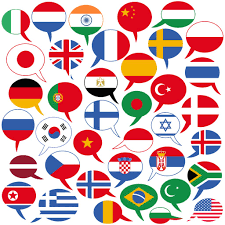International Mother Language Day
By Sharon Schweitzer
UNESCO first established International Mother Language in 1999. The first inaugural celebration was held in 2000. This annual commemoration began as a tribute to the Bengali Language Movement, which sought to recognize Bengali as the official language of modern-day Bangladesh. Historically, this region was considered part of East Pakistan, and it had large Bengali communities with a distinctive language and culture. The plight of the Bengali language is representative of many similar ones faced by small linguistic communities around the world.
The Bengali movement’s plight can most likely be traced back to the establishment of Pakistan in 1947. The Bengali Language Movement began in East Pakistan’s Bengali communities and gained prominence in the early 1950s. To gain official recognition for their language, the movement held public meetings and rallies. In 1952, police opened fire on the Bengali Language Movement’s mass procession march. Several people were killed, and hundreds more were injured. The day of this incident was to be commemorated by Bengalis as a national holiday.
This story later inspired the United Nations to designate February 21 as International Mother Language Day. The U.N. initiative’s goal is to save the world’s languages from extinction. Since 2000, every international observance has had a theme. Each year’s celebration tries to add new elements to educational efforts to preserve indigenous languages and promote language learning. As a result, the celebration of the Bengali Language Movement becomes an international phenomenon that honors languages all over the world.
There are over 7,000 languages spoken in the world — this is a large number considering that some languages are better documented and more spoken than others. Many ethnic languages, some of which are still spoken by small groups today, will most likely be extinct in a few decades. This is why International Mother Language Day is so important, as it is part of a larger initiative to revive many communities’ linguistic heritage.
Linguistic diversity is increasingly threatened as more and more languages disappear.
Globally 40 per cent of the population does not have access to an education in a language they speak or understand. Nevertheless, progress is being made in multilingual education with growing understanding of its importance, particularly in early schooling, and more commitment to its development in public life.
The theme of International Mother Language Day celebration 2024 is “Multilingual education is a pillar of intergenerational learning”. Today, 250 million children and young people still do not attend school and 763 million adults do not master basic literacy skills. Mother tongue education supports learning, literacy and the acquisition of additional languages.
Photo by by www.axcultures.com
Sharon Schweitzer JD, is a diversity and inclusion consultant, cross-cultural trainer, etiquette expert, and the founder of Access to Culture. In addition to her accreditation in intercultural management from the HOFSTEDE Centre, she is an attorney and mediator. Sharon served as a Chinese Ceremonial Dining Etiquette Specialist in the documentary series Confucius was a Foodie, on Nat Geo People. Her Amazon #1 Best Selling book in International Business, Access to Asia: Your Multicultural Business Guide, won a coveted Kirkus Star, and was named to Kirkus Reviews’ Best Books. She’s a winner of numerous awards, including the British Airways International Trade Award at the Greater Austin Business Awards.
#SharonSchweitzer, #AccesstoCulture, Access2Culture, #InternationalCelebration, #AccesstoAsia, #GlobalEtiquette, #Cross-CulturalTrainer, #InterculturalCommunication, #InternationalCommunication, #Interculturalist, #Etiquette, #CultureExpert, #Speaker, #KeynoteSpeaker, #Language, #Bengali, #Multilingual, #UnitedNations, #Pakistan


Leave A Comment